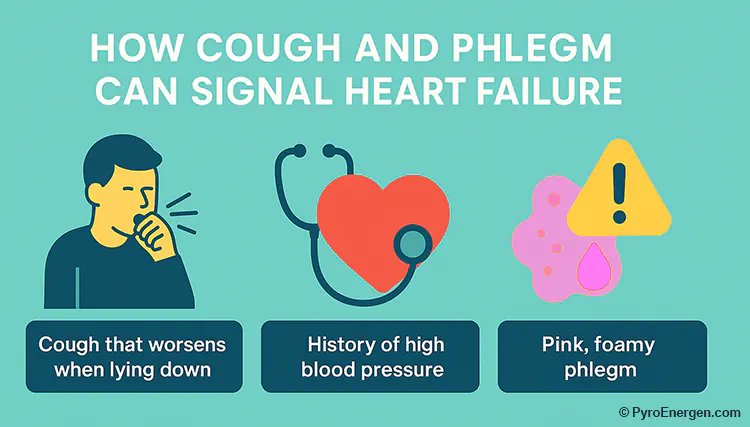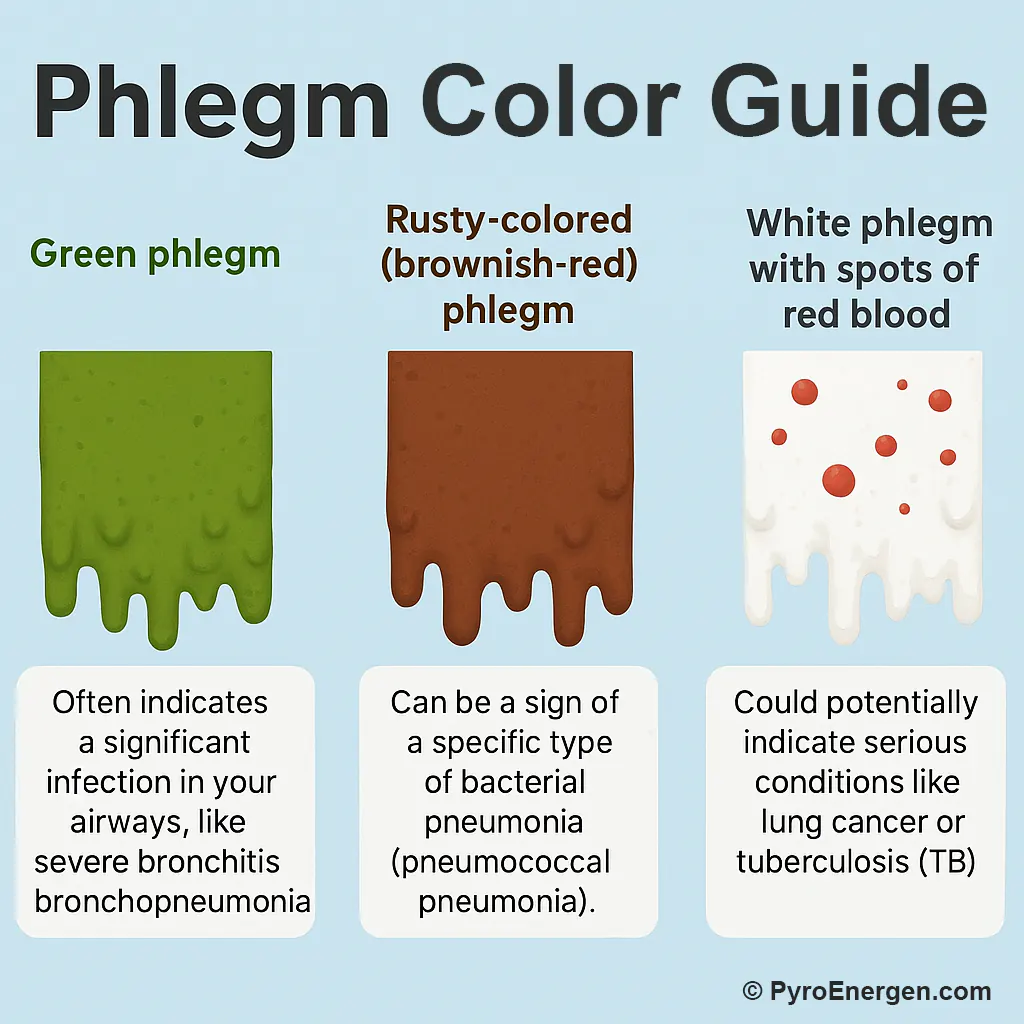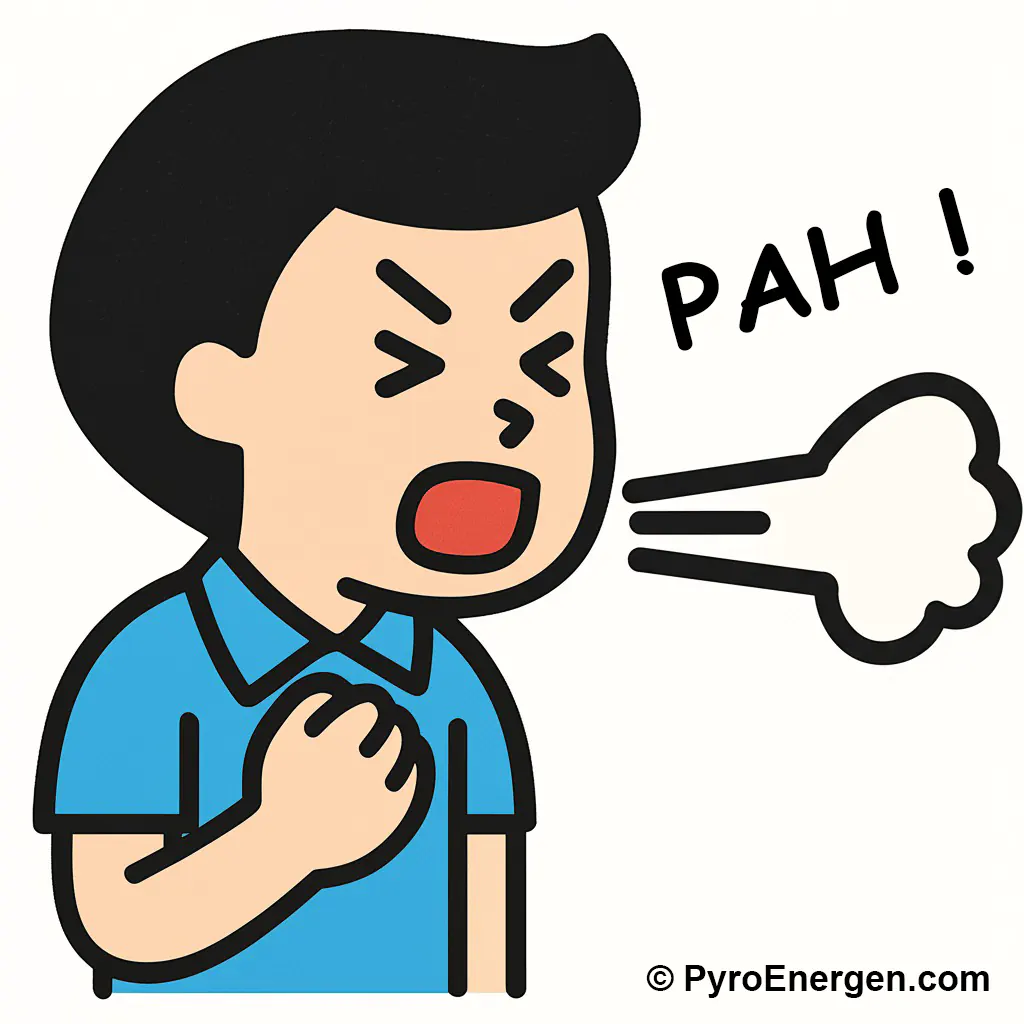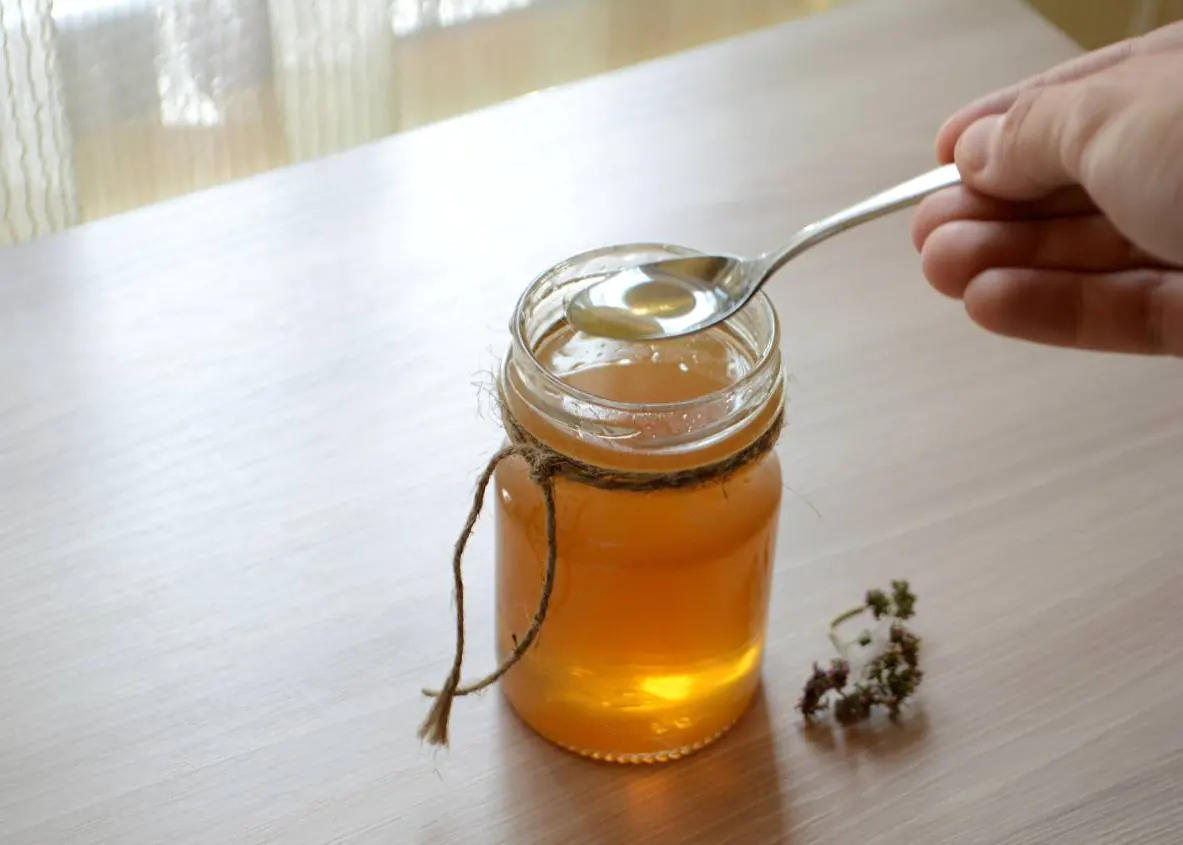Is Your Cough Serious? Phlegm Clues, When to Worry & Relief Trick
Updated: June 2025
Does your cough seem to last forever? Or does it only bother you at night? We've all worried sometimes, "Is this cough serious?"

Basically, coughing is your body's natural way to clear out unwanted things from your lungs. If you just have a cold, a cough is usually nothing to worry about. But sometimes, a cough can be a sign of a more serious illness.
The best clue to understand your cough is the phlegm that comes up when you cough. Phlegm is actually the material your lungs are trying to get rid of. It might look unpleasant, but it's actually very helpful because it can tell us the real reason you're coughing.
Once you know the real cause of your cough, you can take the right steps to treat it and make it stop sooner.
How Cough and Phlegm Can Signal Heart Failure
- A cough caused by heart failure often gets worse when you lie down at night and feels a bit better when you sit up.
- Asthma can sometimes cause a similar cough. However, if you have high blood pressure (or had it in the past) and develop this type of cough, it's wise to see a heart specialist (cardiologist) just to be safe.
- If the cough becomes severe, you might cough up phlegm that looks foamy. Sometimes, it might have blood mixed in, making it look pink. Pink, foamy phlegm is a sign that heart failure is worsening quickly, and you need medical attention immediately.

- Other signs of heart failure can include feeling very tired after only light activity, or noticing increased swelling in your legs or face. Be aware of these symptoms.
Could Your Long-Lasting Cough Be Postnasal Drip?
- Sometimes, after you've had a cold, the air pockets in your face (sinuses) can become inflamed. This condition is called sinusitis.
- With sinusitis, mucus (the fluid from your nose) might drip down the back of your throat into your airway instead of coming out your nose. This dripping can trigger a cough. It's called "postnasal drip".
- A key sign of postnasal drip is feeling like something is stuck or tickling in the back of your throat or nose.
- Mucus can also build up in your throat overnight. You might find yourself coughing up a noticeable amount of yellowish-white phlegm in the morning.
- Treating the underlying sinusitis often clears up a persistent cough caused by postnasal drip. For further information, you may be interested in reading the articles below on this topic:
What Else Phlegm Can Tell You About Your Health
Looking closely at your phlegm can give clues about other conditions too:
- Green phlegm: Often indicates a significant infection in your airways, like severe bronchitis or bronchopneumonia.
- Rusty-colored phlegm (brownish-red): Can be a sign of a specific type of bacterial pneumonia (pneumococcal pneumonia).
- White phlegm with spots of red blood: Could potentially indicate serious conditions like lung cancer or tuberculosis (TB).

Phlegm might seem unpleasant, but it carries important signals from your lungs about potential problems. Before you throw away the tissue, take a moment to check the phlegm's color and consistency.
Remember, coughing up phlegm is your body's essential defense mechanism to clear your lungs. Instead of just suppressing the cough with medicine, it's crucial to find out why you're producing phlegm and treat the root cause early.
"Puffing": A Gentler Way to Clear Phlegm
Coughing forcefully over and over can make your chest and throat sore. A technique called "Puffing" was developed to help clear phlegm more easily:
- How to do it: Take a deep breath in. Close your lips tightly. Then, force the air out quickly and sharply, making a "Pah!" sound.
- This strong burst of air is believed to help push phlegm from deeper in your lungs up towards your throat, making it easier to cough out.

Using Honey to Soothe a Cough from a Cold
- For children (over 1 year old): Before bed, mix about 2 teaspoons of honey into a small amount of warm water (about half water, half honey works well). Give it to the child slowly using a spoon.
- Crucial Safety Note: Never give honey to infants under one year old. It can cause a serious illness called "infant botulism" as babies' digestive systems are not fully developed, allowing Clostridium botulinum spores to germinate and produce toxins in the gut.

- For adults: Try adding about 2 teaspoons of honey to a cup of coffee. It's thought that the combination of caffeine and honey might help soothe a cough.
Final Thoughts: Listen to Your Body
Understanding your cough and the phlegm that comes with it is a great first step in taking care of your health. Remember, phlegm isn't just something to get rid of – it can be a helpful clue from your body. While simple remedies can help with everyday coughs, don’t forget that most coughs are caused by viral infections including the common cold. If you are dealing with a cough from a viral illness, many people find the PYRO-ENERGEN electrostatic therapy machine to be helpful in providing quicker recovery. By paying attention to these signs, you're taking an important step towards feeling better sooner.
Reprint Rights: You may reprint this article within your website, blog, or newsletter as long as the entire article remains the same as well as the “About the Author” box.



 Junji Takano is a Japanese health researcher involved in investigating the cause of many dreadful diseases. In 1968, he invented PYRO-ENERGEN, the first and only electrostatic therapy machine that effectively eradicates viral diseases, cancer, and diseases of unknown cause.
Junji Takano is a Japanese health researcher involved in investigating the cause of many dreadful diseases. In 1968, he invented PYRO-ENERGEN, the first and only electrostatic therapy machine that effectively eradicates viral diseases, cancer, and diseases of unknown cause.


